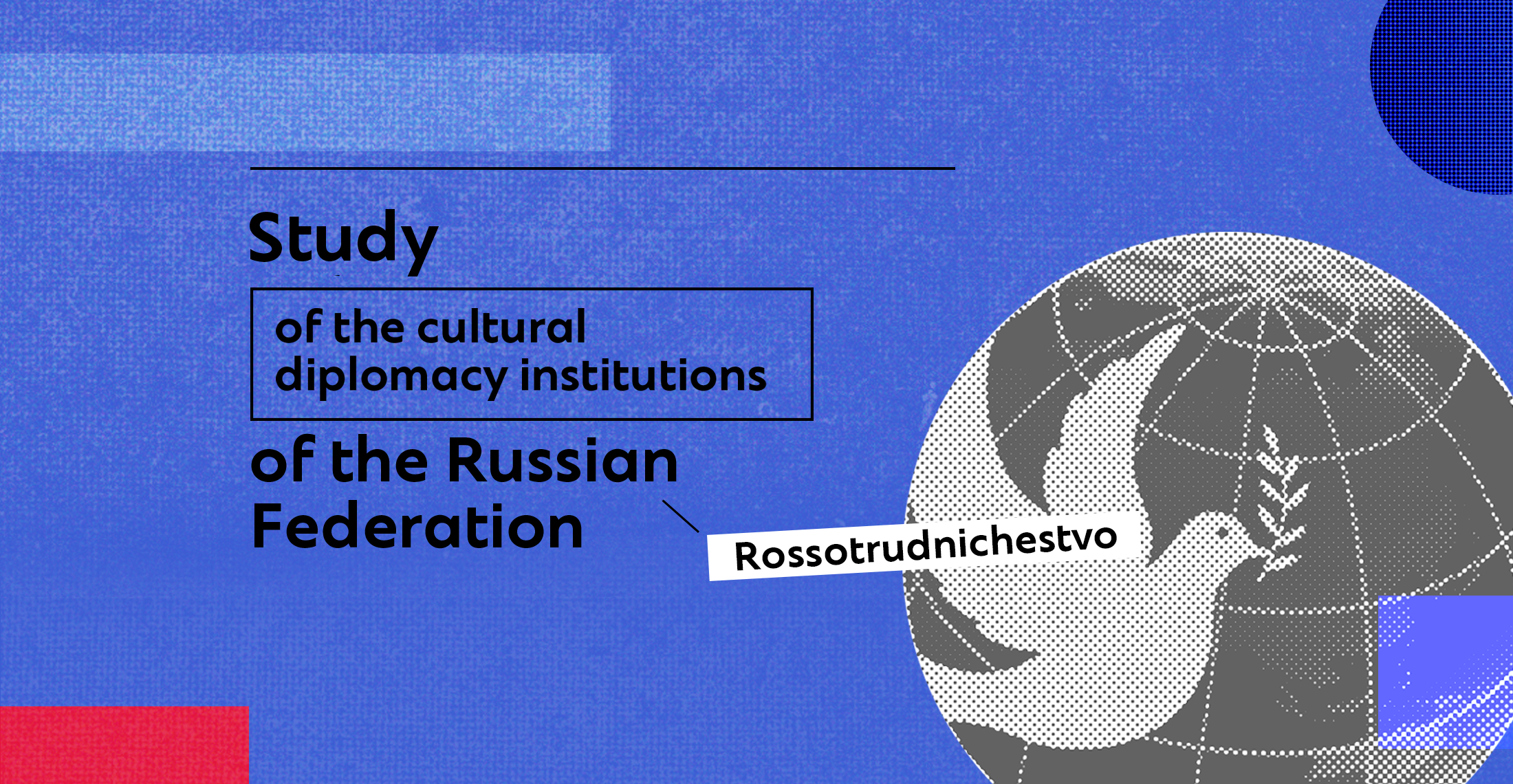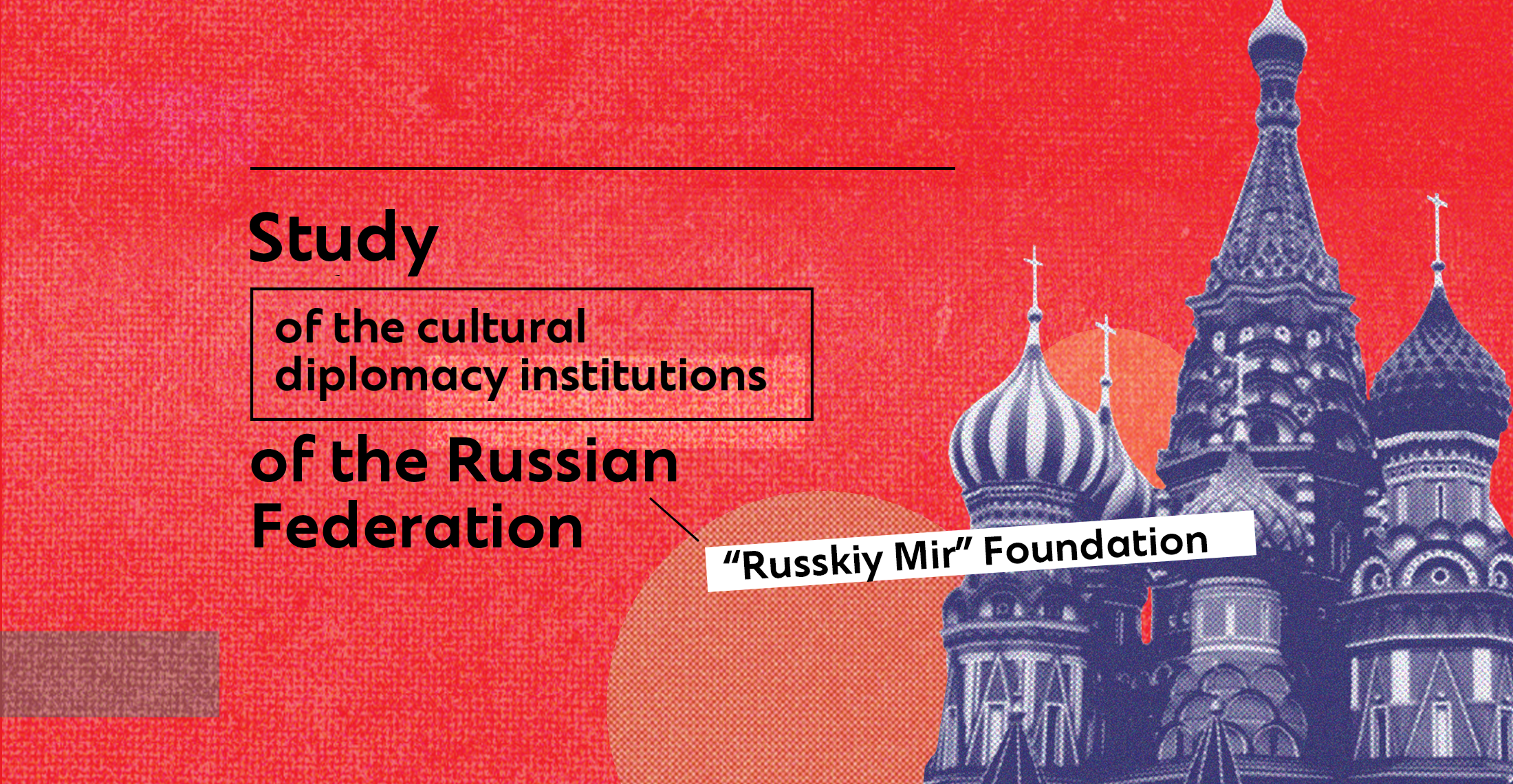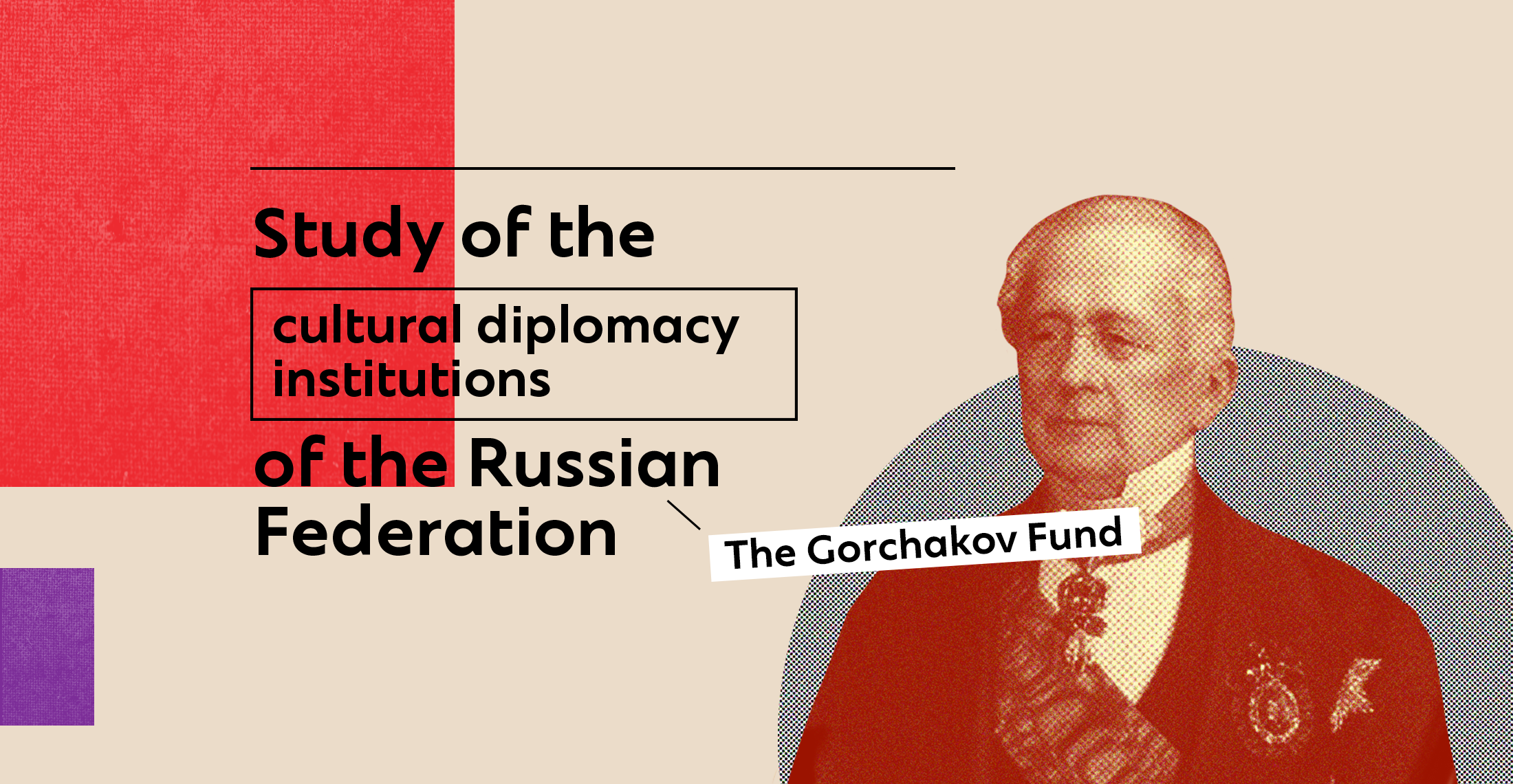The study
First Roubles, Then Guns: The Alexander Gorchakov Public Diplomacy Fund
Dates
March – April 2022
Researchers
Denys Tereschenko, Nadia Koval
About the study
This paper is part of the Ukrainian Institute’s research project “Study of the cultural diplomacy institutions of the Russian Federation”, conducted jointly with the research agency MZ Hub.
The research is based on the publicly available sources, primarily the Gorchakov Fund’s official website and social media as well as the websites of its partner organisations, and on media reports concerning its activities in Russia and abroad. We have traced the origins of this organisation and its role within the (eco)system of related Russian governmental and peri-governmental institutions spreading foreign policy narratives favourable to the Kremlin. We have also looked into the Fund’s own initiatives along with its mechanism for the allocation of grant funds for the public diplomacy projects and singled out its narratives after the launch of Russian full-scale invasion into Ukraine on February 24th, 2022.
The study’s main conclusions:
- Despite its legal status as a non-governmental organisation, the Gorchakov Fund is strictly controlled by the Russian government. Almost half of the Fund’s assets stem from the federal budget, and there are quite a few representatives of Russian political elites in its governing bodies. Furthermore, another part of the Fund’s budget is supplied by unknown private individuals, who are supposedly Russian oligarchs.
- The Gorchakov Fund is closely intertwined with fellow governmental and peri-governmental organisations via the mutual participation of their heads in each other’s governing bodies. Russian International Affairs Council, Rossotrudnichestvo, Diplomatic Academy of the Russian Federation, Institute of Europe of the Russian Academy of Sciences, and others all belong to the ecosystem of organisations actively disseminating pro-Kremlin narratives to foreign audiences.
- The Fund implements projects of various scopes. First of all, it allocates relatively small grants for the public diplomacy projects of the young professionals. Even more visible are the Fund’s summer schools and conferences dedicated to specific countries or regions that are of high priority according to the Russian foreign policy doctrine. There are also several bigger events at the highest political level, as, for instance, the Potsdam Meetings (suspended in March 2022) where both Russian and German MPs have participated and whose main aim has been to review the post-Cold war “security architecture” via co-opting the European leaders into a negotiation of a common Eurasian geopolitical space.
- The Fund’s foremost and long-term goal has been to ensure that future international relations researchers as well as political elites of foreign countries share pro-Kremlin narratives and visions of Russia’s foreign policy and are closely entwined with their Russian counterparts. This had to be fulfilled via a repertoire of regular events and grants specifically targeted at young international relations professionals.



